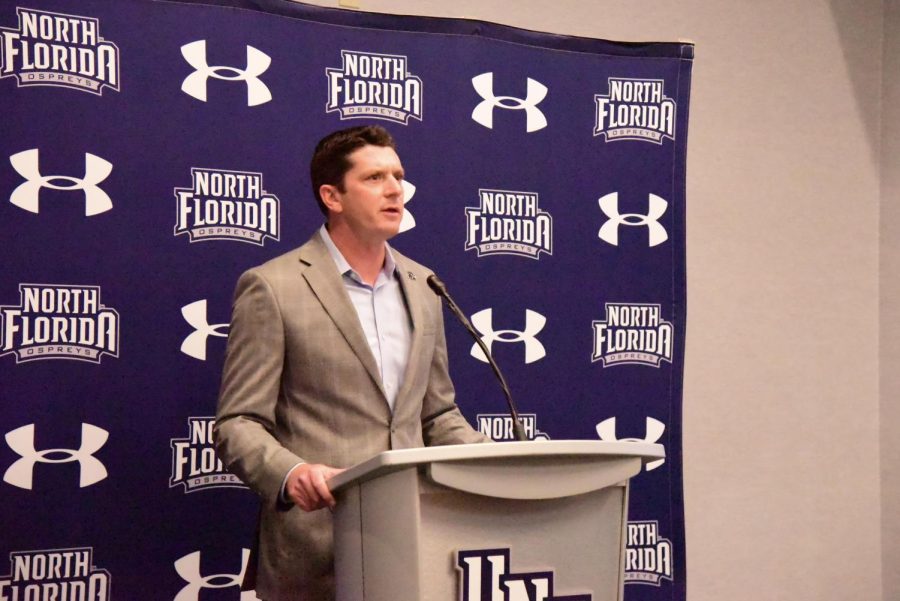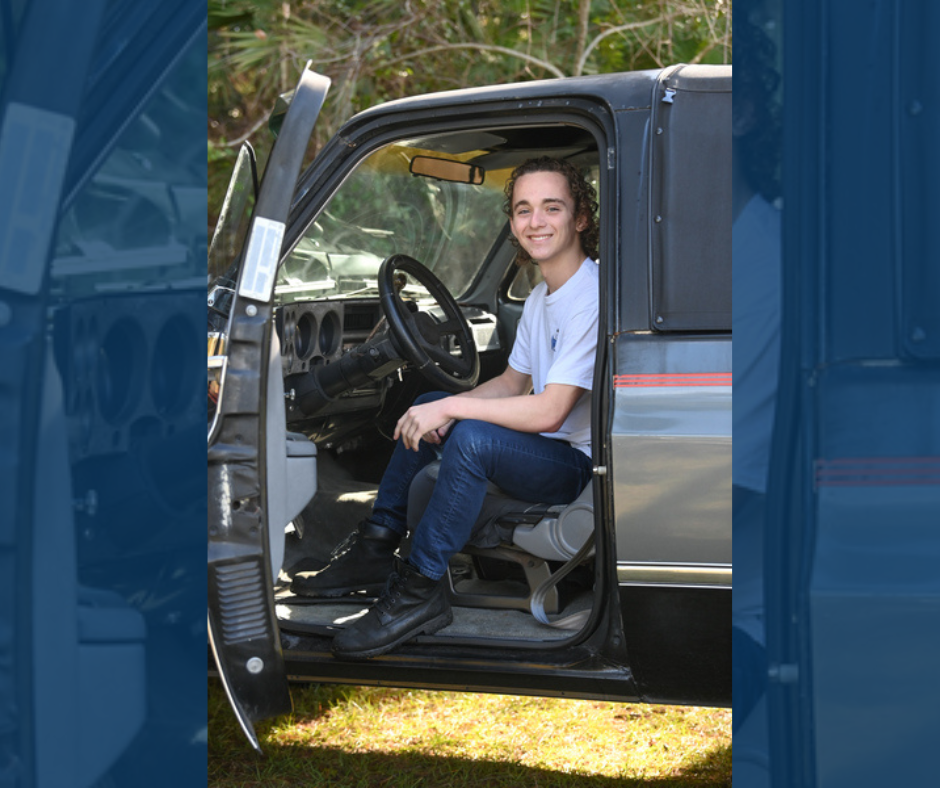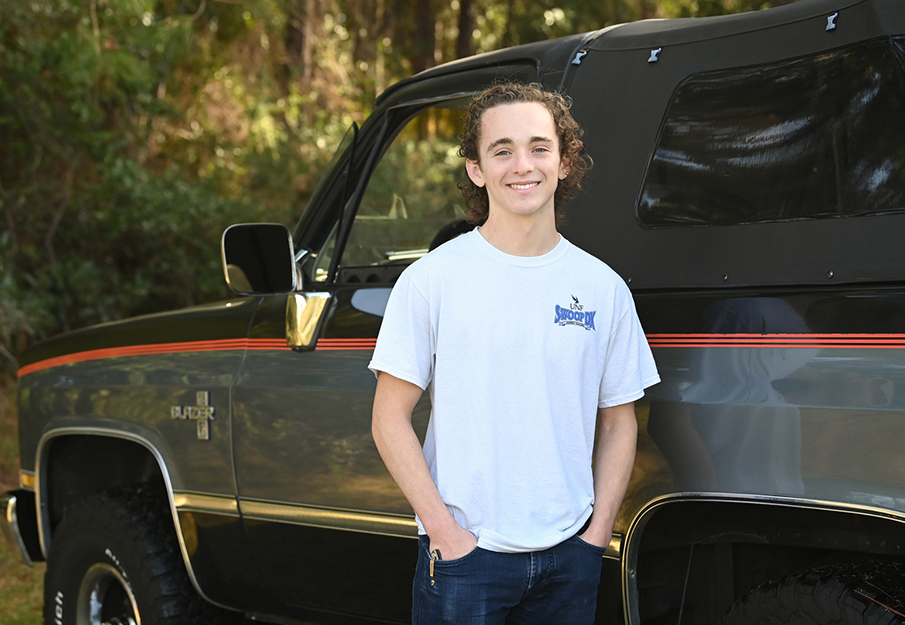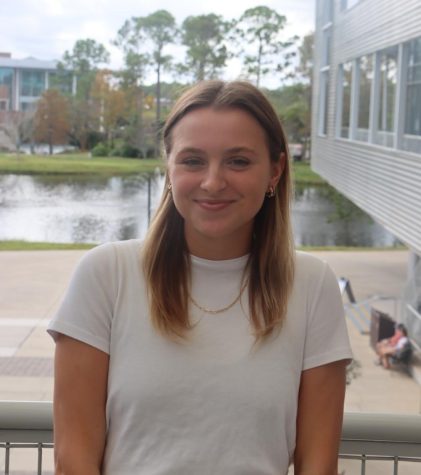[Updated Nov. 4: A previous version of this article mistakenly reported that Student Government would begin their Spring 2023 semester with 18 senators total. A total of 19 senators are running in the Fall 2022 election. Spinnaker takes errors seriously and apologizes for the error. The graphic “Fall 2022 Election, Senate Breakdown” was also updated to reflect the correct information.]
Half of the potential senators for the University of North Florida Student Government’s (SG) Senate addressed rows of empty seats at Tuesday night’s senator debate, answering facilitated questions with no opportunity for public participation.
A lack of engagement has plagued SG throughout this entire semester’s election. Although the deadline to become a candidate was extended by two weeks, it ended up being uncontested — meaning the number of candidates is the same or less than the number of seats open to be filled, so all candidates are guaranteed to be given a spot.
Now, a total of 19 candidates are set to be sworn in soon after the election calendar officially wraps up. Nearly split down the middle, nine candidates are coming from the Unity party and 10 from the Soar party.
Nine candidates attended the forum in total. Unity Party Leader Maya Drum and Soar Party Leader Emily Sullivan told Spinnaker that the other missing senators either had conflicting scheduling issues or were confused about how the forum would be held because they were only recently informed that the election is uncontested.
“Some of [the candidates] struggled with night classes or jobs,” Sullivan said. “With it being uncontested, they weren’t really sure what the event was looking like.”
The debate was advertised by the official Office of Elections account on Instagram as an opportunity for the public to attend and “ask questions about different issues on campus, initiatives, and how the SG members are addressing the needs of the student body at UNF.”
Spinnaker was in attendance and there was no opportunity to ask candidates questions until after the event finished and candidates began leaving.
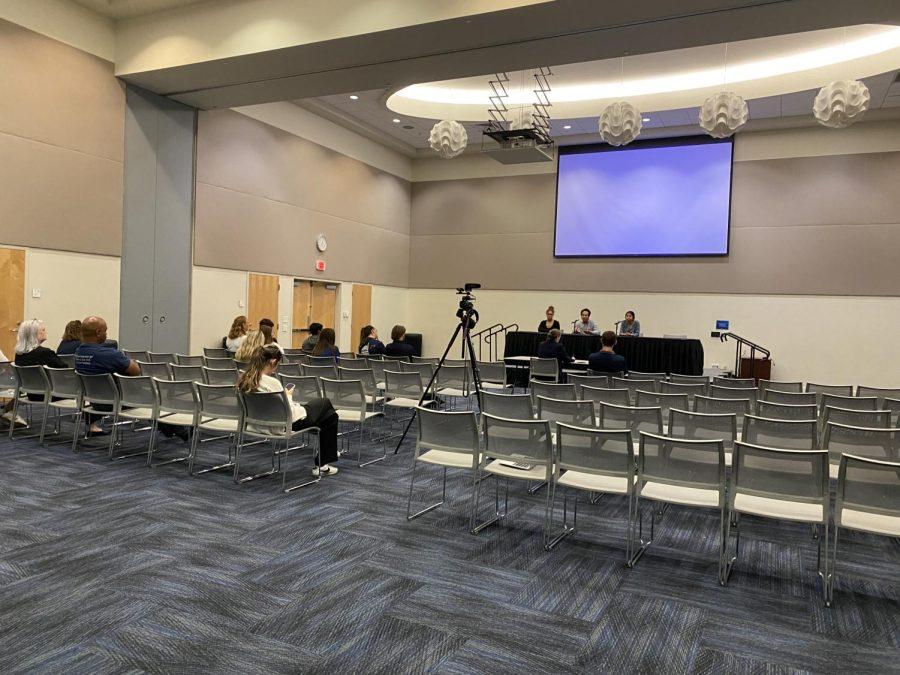
For the debate, senators were brought to the stage in groups of three to answer a series of questions from a facilitator. Topics included questions about their initiatives, how they plan to work alongside other senators and how they will fulfill their duty as a senator in SG.
Gabriel Springer is one of the newest senators joining SG. A junior double-majoring in bio-medical science and behavior neuroscience, Springer said he chose to become a senator after learning his fellow STEM community wasn’t aware UNF had a Student Government, and that those who did didn’t know how to be represented or get involved.
Springer said one apprehension he has about becoming a senator is seeing how thorough the mentors and members of SG are in getting him up to speed on everything there is to know.
“The Senate actually manages an over, I think, $5 million budget,” Springer said. “That type of responsibility is a lot, so determining how we’re going to spend that money and where… it’s a little scary because I’ve never worked with that type of finances before, but it’s a good scary.”
SG’s projected budget for Fiscal Year 2022/2023 — which begins on July 1 of every year and ends on June 30 of the next — is $6,179,400, according to the Activities and Services Fee Budget document. Their projected budget for last year was $5,941,040, according to the Activities and Services Fee Budget document for Fiscal Year 2021/2022.
Traditionally, the debate is an opportunity for potential senators to showcase their initiatives and hear students’ concerns but last night, because of the election’s now-uncontested nature, it functioned like a town hall, Deputy Elections Commissioner Ali Sartawi told Spinnaker earlier this week.
The Senate has 40 seats and assuming all 19 candidates are sworn in, the Legislative Branch will have 26 total senators going into the spring.
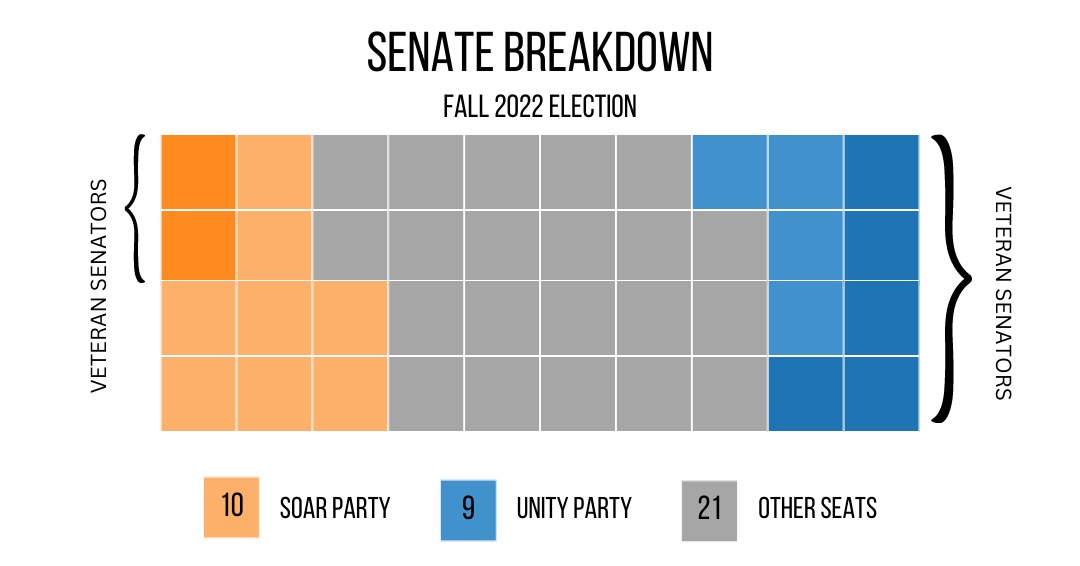
This is the third semester in a row SG has seen an uncontested election and last night’s forum asked returning senators about the retention problem SG has faced with keeping members involved with the organization.
“I feel a big issue with retention is [students] just aren’t comfortable,” Sullivan said. “It can be an intimidating setup in the chambers … so making sure to start from the beginning of the training so [students] understand how the flow is so it doesn’t deter them.”
Senator Kilambi echoed Sullivan’s answer and advised new senators to reach out and talk to the other members of SG if they have a problem, issue or initiative.
Given that the election is uncontested and students don’t vote on candidates as they would in a contested election, Senators Emily Sullivan and Maya Drum agreed that having an uncontested election takes a great deal of pressure off of new senators.
“Rather than the stress of putting their name out there, they’re already getting a footing of their initiatives,” Sullivan said. “So when they come in, they’re comfortable being a senator, talking as a senator and working as a senator.”
Working to get the best candidates possible, Sullivan explained that she personally spoke with each new candidate at the beginning of the election process. She said this was to ensure they knew the values of both the Soar Party and what it means to be a senator in SG.
She said that she didn’t sign off on a few candidates’ Declaration of Intent that she felt were running in a “power-hungry way” and didn’t bring any initiatives to the table.
Spinnaker requested a statement from SG about why there was no opportunity for the public to ask questions during the debate but did not receive a response as of publication. Spinnaker also requested a list of the candidates present and not present for the debate but did not receive a response as of publication.
___
Editor-in-Chief Carter Mudgett contributed to this report.
___
For more information or news tips, or if you see an error in this story or have any compliments or concerns, contact editor@unfspinnaker.com.





